Detroit will mark the first anniversary of its bankruptcy filing this Friday, and across the country, people are watching the city to see how it has survived the upheaval.
Despite pending cuts for pensioners, as well as widespread poverty, sobering health and violence statistics and a declining population, Detroiters have expressed cautious optimism about recent changes, which include greater investments in development, promises to improve city services and an ambitious plan to eliminate urban blight.
The largest municipal bankruptcy in U.S. history has also stirred up interest in success stories. Though no one person will fix Detroit, some people have received well-deserved attention for their work to improve the city. A New York Times article last month highlighted hot spots in the Corktown neighborhood, and a story in the same paper earlier this year heralded small businesses.
But something's missing from those pieces, and from many other articles that examine the city's resurgence: black Detroiters, who make up 83 percent of the population.
Stories that claim entrepreneurs are building, revitalizing and even saving Detroit focus primarily on white professionals, often younger and new transplants to the city, a trend that's palpable and frustrating for locals. When journalists and readers criticized the Times for leaving blacks out of its Corktown story, the paper's public editor addressed the lack of diversity in a follow-up, and the writer said she regretted not including a black-owned business. (A more recent Times story takes a wider-ranging view.)
It's not difficult to find a black business owner to speak with, though. There are more than 32,000 in the city, according to U.S. Census Bureau figures from 2007. Many, particularly those who have kept their businesses going on shoestring budgets, feel excluded from conversations about Detroit's revival and overlooked when it comes to getting access to funds and resources.
"I think, for the most part, black-owned businesses are not getting a piece of the pie," bookstore owner Janet Jones told The Huffington Post. "What about people who have been doing the hard work of living and working and having business in Detroit for the last 20 years?"
Despite difficulties, many business owners have had their doors open for decades, something local developer George Stewart, 77, traces back to historical segregation that had white business owners refusing service to black customers.
"During the good times and the bad times, black-owned businesses have been around, primarily serving their community," said Stewart, who moved to Detroit from Baton Rouge, Louisiana in the 1960s. Such businesses, Stewart said, have long been "circulating resources, building wealth [and] opening doors to other opportunities, such as higher education and lifestyle."
Below are just a few of the successful black business owners contributing to Detroit's resurgence, including young entrepreneurs newly investing in the city and locals who have stuck with it for years.
Hamilton Anderson Associates has been designing Detroit's future for decades.
 Rainy Hamilton. Photo courtesy Hamilton Anderson Associates.
Rainy Hamilton. Photo courtesy Hamilton Anderson Associates.
After working for others, Rainy Hamilton started his own company out of his home 20 years ago with co-founder Kent Anderson. Since then, the 50-person firm (with 20 percent minority staff) has grown to include offices in Las Vegas, New Orleans and Detroit's Harmonie Park, and has been involved with a range of projects that have contributed to Detroit's development, including work on schools, community centers, the MGM Grand casino and a light rail line now under construction, as well as Detroit Future City, a book-length urban planning document released last year.
Hamilton took cues from his dad, a Ford employee with a landscaping business on the side.
"My first job was working for him when I was barely big enough to handle a pair of gardening shears," Hamilton said. "Being an entrepreneur is somewhat in my spirit." Hamilton also opened a hobby shop in a nearby suburb several years ago.
Despite his relative success, Hamilton said he's experienced challenges getting work as a black architect. He suggested implementing policy in Detroit that would help long-standing businesses within city limits.
Textures by Nefertiti nurtures women's outer beauty -- as well as their minds and spirits.
 Nefertiti Harris with her two children. Photo courtesy Textures by Nefertiti.
Nefertiti Harris with her two children. Photo courtesy Textures by Nefertiti.
The historic Cass Corridor neighborhood in greater Midtown is now a development hot spot, but when Nefertiti Harris started her business there 13 years ago, she "was literally chasing prostitutes off the street corner."
Harris first called her space a "non-salon," because of her focus on natural hair and her emphasis on caring for women's inner selves.
"If a woman wants to make a change and comes into the salon," she said, "it's usually not just about the hair, but about really getting free in her life."
Last year, Harris also opened Tarot and Tea in West Village, where she focuses on her customers' inner lives with spiritual readings, a cafe and a small boutique.
Detroit Vegan Soul helps Detroiters expand their horizons with a healthy spin on comfort food.
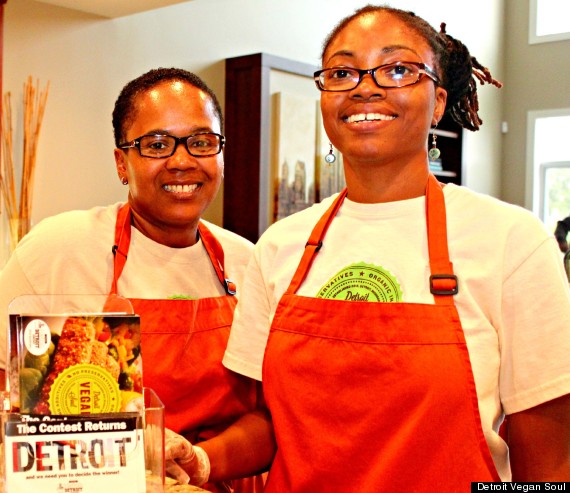 Erika Boyd and Kirsten Ussery-Boyd. Photo courtesy Detroit Vegan Soul.
Erika Boyd and Kirsten Ussery-Boyd. Photo courtesy Detroit Vegan Soul.
Erika Boyd and Kirsten Ussery-Boyd both left careers in other fields to open a restaurant in West Village last year, serving soul food classics like collard greens, barbecue and mac-n-cheese -- all vegan. They took the leap after watching loved ones and the broader African-American community struggle with diet-related illnesses. Together they crafted a menu that's both delicious and healthy.
Ali Sandifer Studio brings its modern style to Detroit's design community.
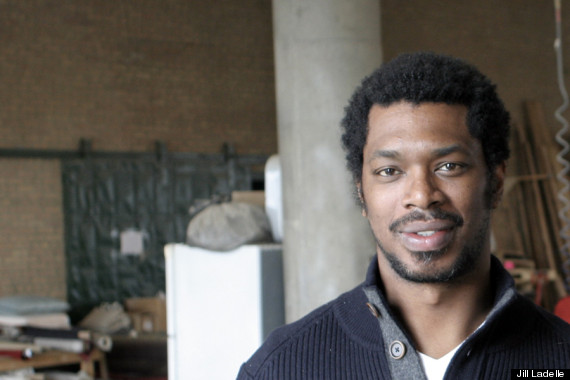 Andre Sandifer of Ali Sandifer Studio. Photo by Jill Ladelle.
Andre Sandifer of Ali Sandifer Studio. Photo by Jill Ladelle.
Husband-and-wife team Andre Sandifer and Abir Ali are the founders of Ali Sandifer Studio in Detroit's Russell Industrial Center. There, they make modern furniture with cleverly camouflaged storage compartments out of sustainably harvested domestic hardwoods.
Sandifer told HuffPost that there are few minority-owned furniture design studios in the country, and that his and Ali's presence in Detroit contributes to a larger legacy of design talent in the city.
Thrift on the Avenue sells style with a mission.
 Jessica Glen, R. Christoper Prater and TaNisha Prater. Photo by Crystal Baskin.
Jessica Glen, R. Christoper Prater and TaNisha Prater. Photo by Crystal Baskin.
R. Christopher Prater and TaNisha Prater, who recently moved back to their native Detroit from Atlanta, opened their boutique in Midtown this year with partner Jessica Glen. They sell secondhand women's clothing -- TaNisha is a third-generation retailer, and her husband has always been a thrift shopper, a necessity in his family of 13 siblings.
The Praters say style is a secondary priority for the shop, which donates 30 percent of its proceeds to Coalition of Temporary Shelter, a nearby residence for homeless Detroiters. Thrift on the Avenue has started a recurring event to give full makeovers to women at COTS and raise awareness of the circumstances that lead to homelessness.
"If we can help people transition from homeless shelters and put them in a position where they can land a job and provide for their families, that's worth way more than the couple bucks we make from a pair of jeans," R. Christopher said.
Sweet Potato Sensations turned a unique family recipe into a brick-and-mortar bakery.
 Sisters Jennifer and Charice "Espy" Thomas. Photo courtesy Sweet Potato Sensations.
Sisters Jennifer and Charice "Espy" Thomas. Photo courtesy Sweet Potato Sensations.
Sisters Jennifer and Charice "Espy" Thomas run Sweet Potato Sensations with their parents Jeff and Cassandra, who started the business in 1987. Their bakery in the Redford neighborhood takes the sweet potato to new heights, using it to make pies, ice cream, cheesecake, waffles and more. Cassandra's recipe for sweet potato cookies quickly became a favorite among friends and eventually led to the cafe staffed with local residents.
Hair Wars turns one of Detroit's big businesses into an art form.
 David Humphries with a Hair Wars model. Photo by Star, courtesy Hair Wars.
David Humphries with a Hair Wars model. Photo by Star, courtesy Hair Wars.
Back in the '80s, David Humphries was a club promoter looking to add a twist to Detroit nightlife. On a whim, he started Hair Wars as a place for stylists to show off their work.
"I soon realized I had tapped into the biggest black entrepreneurial business in America," Humphries said.
Decades later, the annual show draws big crowds and features some of the most outlandish and exciting coiffures imaginable -- many of them more art than hair.
Detroit Dirt is creating a sustainable future for the city from the ground up.
Pashon Murray appeared in a Ford commercial earlier this year.
Not many people are passionate about the manure of exotic herbivores, but that's what Pashon Murray collects from the giraffes, rhinos and zebras at the Detroit Zoo as part of her larger plan for sustainable urban farming and gardening. Detroit Dirt sells compost that Murray makes in a Corktown field with waste from local restaurants, breweries and company cafeterias.
After experimenting with soil blends, Murray plans to expand her business and hire several people next year.
"As a black woman, I feel like I'm obligated for our youth and community to set a standard," she said. "I would like the black community to get more involved in agriculture ... Sustainability is not a black and white thing. It's an all-inclusive thing."
Source Booksellers fosters a literary community.
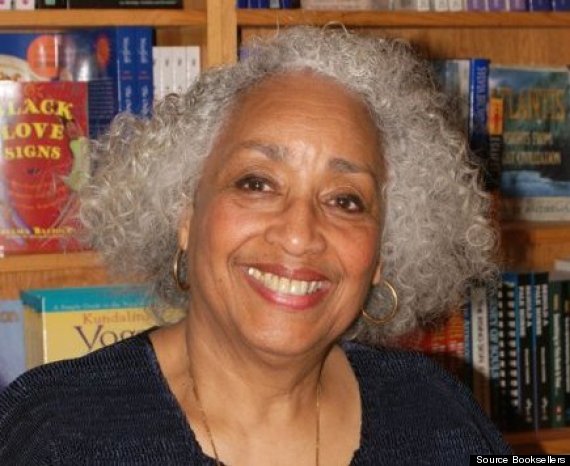 Photo courtesy Source Booksellers.
Photo courtesy Source Booksellers.
Janet Jones started selling books in 1989, first as a small vendor at events, then as part of a collective. Last year, she opened a stand-alone shop in Midtown. Her curated selection of nonfiction books on history, culture and spirituality, among other topics, are chosen with an eye toward educating people and enhancing their lives. So are the events and classes held in the bookstore's community space.
The Social Club Grooming Company brings sustainability and inclusiveness to the barbershop.
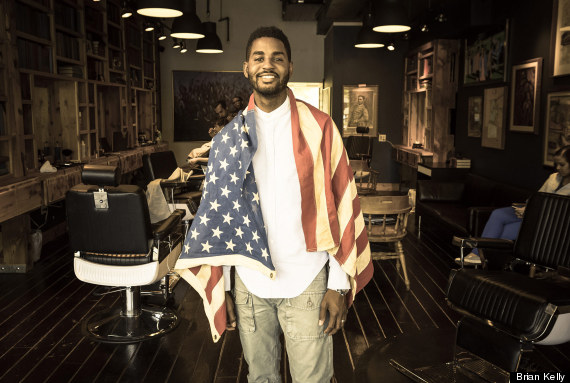 Photo by Brian Kelly.
Photo by Brian Kelly.
Sebastian Jackson's first three business plans were rejected, but in 2012, he and his wife Gabrielle eventually succeeded in opening the Social Club Grooming Company, built with reclaimed lumber from blighted Detroit homes, on Wayne State University's campus. They've partnered with a local park to build a greener city. Already, clippings of cut hair have been used as fertilizer for 200 new trees.
While Jackson takes pride in the diversity of both his staff and his clientele, he notes that barbershops have historically served as a black community hub, and aims to recreate that experience for all Social Club customers.
"We need to create and support more businesses that cater to the predominant Detroit experience," he said.
The Woodward Garden Block Development revitalized a Detroit block without wiping out its history.
 Photo courtesy Woodward Garden Block Development.
Photo courtesy Woodward Garden Block Development.
George Stewart and his partner Michael Byrd have worked since 2000 to transform a once-dilapidated block of Woodward Avenue. Today, the $53 million Midtown development includes office space, apartments, parking, a coffee shop, a restaurant and the Garden Theater, restored from a century-old movie palace.
"It took five times longer than any other project of its kind," Stewart said. "When we first started, doing business in Detroit was not easy ... We had to have a lot of patience and be creative in how we acquired resources to fund our dream."
Savvy Chic serves up Parisian style to Detroiters.
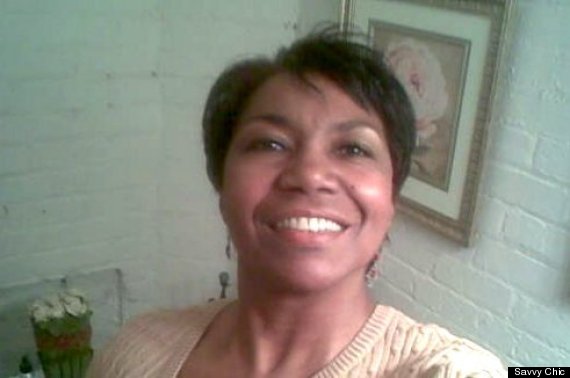 Photo courtesy Savvy Chic.
Photo courtesy Savvy Chic.
Eastern Market is now known for its shops, galleries and farmers market, but when Karen Brown opened her boutique, her street was known more for its meat wholesalers. Brown never wrote a business plan, but she has kept Savvy Chic open for 14 years, selling home goods, antiques and clothing. Entrepreneurship runs in the family: Brown's mother has owned a flower shop in northwest Detroit since the 1980s.
The N'Namdi Center for Contemporary Art sustains Detroit's creative legacy and builds momentum for the future.
 Photo courtesy The N'Namdi Center for Contemporary Art.
Photo courtesy The N'Namdi Center for Contemporary Art.
After running other galleries, George N'Namdi opened the nonprofit N'Namdi Center for Contemporary Art in 2010 in the Sugar Hill Arts district. The Center includes exhibition spaces, indoor and outdoor performance areas, a gift shop and a separate vegetarian restaurant. N'Namdi showcases Detroit artists, aiming to propel them to national recognition, and supports other local galleries.
N'Namdi said it's important for Detroit's development to occur organically, rather than at the cost of "sanitizing" the city.
"I think we have to make sure we do not lose the soul of Detroit or that Detroit spirit," he said. "People can move here because of the inexpensive real estate, but they stay because of the soul."
